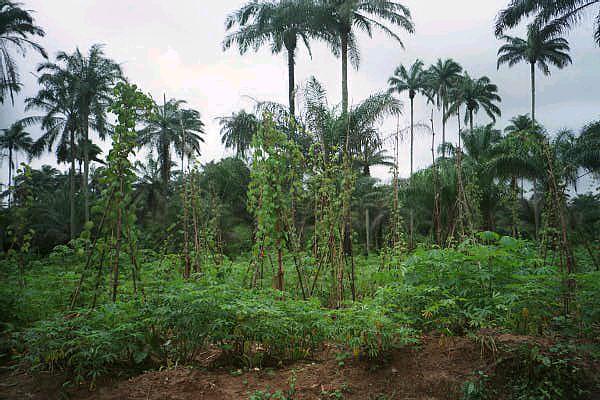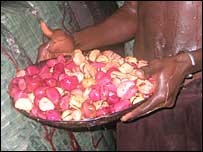Curator: Casey Teator

Human Culture: Patterns of human activity and the symbolic structures that give those activities importance and significance. Also, human artifacts are used to tell about the human culture.
Glossary of Anthropological Terms:
Achieved Status: A status acquired by doing something.
Actual Behavior: What people actually do in their lives, not what they want to do.
Adaptive Mechanism: A behavior, strategy, or idea for obtaining food and surviving in an envrionment.
Band: A society consists of only an association of families living together.
Cereals: The edible seeds.
Clan: A group of people.
Collateral relative: Uncles, aunts, cousins, nephews, and nieces.
Core Values: Fundamental values that provide the basis for social behavior.
Crime: To go beyond what is expected in the community. To break the law.
Culture: Learned behavior patterns that are acquired by people as members of society.
Descent: Socially recognized links between ancestors and descendants, like between parents and children.
Ethnic Group: Category or group of people that is considered different from others in terms of cultural.
Feuding: Occasionaly fighting between individuals and their supporters.
Gender: Sexual Identity
Ideal Behavior: What people believe they should do.
Intensive Agriculture: Full time farming.
Kindred: Family or group bound together by their kinship ties to one person.
Kinship: Culturally defined relationships between individuals who are thought to have family ties.
Production: How food and other necessities are created in society.
Religion: A system of beliefs.
Role: The part a society expects an individual to play.
Symbol: A sound or thing which has meaning given to it by the user.
 |  |
Language and Culture: is the room that describes the ways that they live through their culture. The people of Umuofia have two very important foods that symbolize great things. The yams, which they grow everyday, symbolize manliness. A strong man who is know ready to take care of his family has to plant the seeds and harvest them. This is how he helps feed his family. This is like their job too. The word yams also means "The King of Crops". Since yams mean so much to them, they even have a festival called the Festival of Yams. The crop is used everyday in their life. They must plant them and take care of them, they use yams as a gift to others, to make money, and to make different dishes to eat. Yams are very important to their culture!
Also, the Kola Nut is very important as well as the yams. The Kola Nut even has a saying, "He who brings the Kola, brings the life". As you can see the Kola Nut symbolizes life to the people of Umuofia. When people of Umuofia enterd anothers obi they would have a Kola Nut on the table, which they would have to break. Its like an honor to break the Kola Nut because you are bringing the life. Once you break the Kola Nut, it means that you are praying to the ancestors for life, health, and protection. Once they were done, they would then eat the nut. Once its all done, they continue with why they came to that persons house or obi.
The first room is about Language and Culture. Mostly about culture. This room is about culture because it displays why the yams and the Kola Nut are so important to the villagers of Umuofia. As you can see these two items symbolize something to them. It doesnt matter if its food or not, to the people of Umuofia, yams means manliness and the Kola Nut, means life.

Social Control: is about what symbolizes whats in their village. The fire symbolizes destruction and it also symbolizes heat. The gun on the other hand symbolizes destruction, and also a way to gather food and also protection. The grass hut that they live in called an obi represents their home, and can symbolize wealth. Okonkwo, the leader of the clan, represents strength, courage, sometimes even destruction. Honestly, he can represent good and bad things. Social Control is mostly about what people have in that area to help them survive and the things they use may be good, may be bad. The leader of this clan might be the best leader theyll have, or he might just be someone who can control his anger, or who sometimes breaks the law. There are different ways to look at the aspects of Social Control. Mostly two ways, there can be a good part of it, or a bad part of it.
The grass hut, known as the obi is considered to be the home of the wealthy. Okonkwo had a grass hut because he was known to be wealthy ever since he was a little boy. He was also the leader of the clan. The women did not live in the hut with the husbands but the women had to serve the man ever meal and it had to be on time. If she did not come on time or did not come at all she would have a punishment, a beating for example. This is allowed, but not during the "Week of Peace". The obi is simple to build but still only for the wealthy like Okonkwo.
Okonkwo, the leader, is a serious man who represents strength and unification. He does not want to be anything like his father Unoka who was a weak and lazy man. When Okonkwo was younger he became famous for the throwing of the cat during the wrestling match. It is an honor to have done that. Now that he is older, he is still famous, or wealthy, and does live in an obi and has three wives and children. His son Nwoye, who is disappointed with, is nothing like him, but more like Unoka. His son does not want to be famous like Okonkwo but wants to be more like a Christian. He left Okonkwo to read and write poetry. He said he never wanted to return to see Okonkwo again. His daughter Ezinma, is a very strong girl. Okonkwo always says that he wishes she was the boy in the family, because she is strong and has similar characteristics to him. Okonkwo also took Ikemefuna in to his home, but then had to kill him which made him very upset because he not only treated him like a son, but Ikemefuna also helped Nwoye become more of a man. Once he died, Nwoye just gave up and went back to the way he was before Ikemefuna came into the picture. Okonkwo is also considered to be a destructive man, he may have a succeeding life, but he has a lot of trouble in his path.
The fire represents warmth but thats not the only thing, it symbolizes destructiveness as well. It is mostly symbolic to Okonkwo because he is a destructive man. It represents who he is because it symbolizes the anger he has inside of him. The one thing that fire does is it consumes everything it sees and in the end all that is left, is ash. Okonkwos actions are then taken over by the fire and it destroys him.
The gun is just like the fire and symbolizes destruction. It can also be a way to gather food, but you still have to kill. In a chapter of the book, Okonkwo gets very angry and almost kills his wife by pulling the trigger of the gun, but she was unharmed. It didnt faze Okonkwo though, he just continued with what he was doing. He also shot Ikemefuna, which made him deeply upset. Ikemefuna was like his second son, and he knew that killing him was the wrong thing to do, but he must follow the law. He is the leader, and what people tell him to do, he must do it. When he went back home, he felt like a women because all he would do was lay around and not eat. He got back to normal though, and acted like nothing had happened. What he did not notice was that his life was already in trouble. It was just getting worse and worse as time went on.

Anthropology of Religion: is about their beliefs and who they should trust. Each person in Umuofia has a chi or personal god. The chi determines wheter the person is good or bad, or whether the decision or choice they're making is good or bad. If the person is considered good and they say yes to what their doing then most likely the chi will agree with them. The chi judges a man by the works of his hands. If the man is a hard worker and is honest, then he usually get a yes in return from the chi. But, if the man is bad, and doesnt want to work hard, just like Unoka, Okonkwos father, he should not expect much from the personal god, besides a no.
There is a cave, where the Oracle lives. The Oracle is called Agbala. The Oracle tells them what future lies ahead of them. The people will enter the dark cave, but all theyll see it darkness. They do not confront the Oracle themselves, but the priestess does. There is a little fire that they call the heart of Agbala that lies within the cave, but it does not light the cave at all. When they go into the cave, they are full of strength and have no fear, but when they leave the cave, they fear the power that Agbala has. They go to the Oracle for help and to know if they have done something wrong and if they have, what should they do. Sometimes people just go in there to talk to the spirits of their dead fathers. They will see the spirits vaguely but will not hear them speak. Sometimes good fortune lies ahead, or even bad fortune lies in your path. The Oracle will tell you!